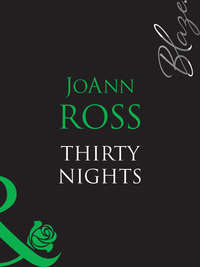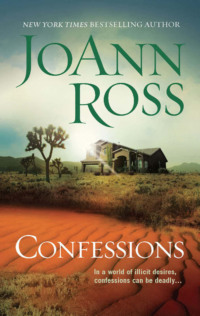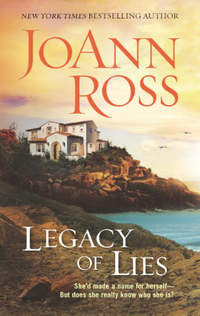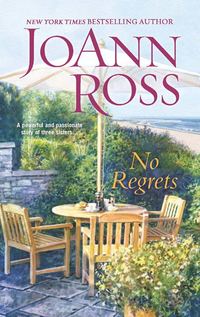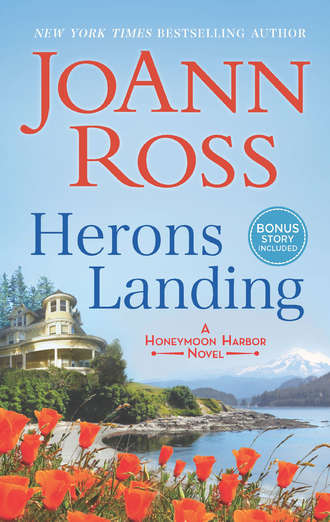
Полная версия
Heron's Landing
“Breakfast of champions,” Dave agreed as he began putting them into a dark blue box with the Doughnut Patrol shield printed in gold on the top.
“The fritters have apples in them,” Seth said. “Which is a government-recommended fruit part of the food pyramid, right?” That was his story and he was sticking to it.
“Works for me,” the former detective agreed. “Like carrot cake is a vegetable.”
“There you go.”
After boxing up the fritters and crullers, along with three doughnut holes in a small waxed bag for Bandit, Dave handed the complimentary baker’s dozen thirteen deep-fried doughnuts to Seth, who bit into a cruller and enjoyed the rush of fat and sugar.
He drove along the water, turning up the hill to a gut-job he’d been working on for a month. Great. His dad’s truck was already in front of the house. Seth didn’t know how the old man did it, but he’d often thought he could arrive at two in the morning and Ben Harper would already be there.
He paused for a moment, studying the house, which was one of his favorites. Like the arts and crafts bungalows, Folk Victorians were one of the most often found styles of historical houses in the country, and what home buyers usually thought of when they went looking for “charm.”
The homes had ruled the day from 1870 to 1910. Unlike the better-known high-style Queen Anne, a Folk Victorian was nothing more than a dressed up ordinary “folk house,” so named because it had been built to provide basic shelter for the masses with little regard for changing fashions.
As growing railroads brought machinery into towns where workmen could produce inexpensive Victorian detail to be grafted onto existing homes, the decorated houses began to spread like wildfire.
What set the Folk Victorians apart from the earlier ordinary houses was the decorative detailing on the porches and cornice line. Porch supports were usually turned spindles or square beams with beveled corners. Other porch details were lacy or unique jigsaw-cut balustrades. The possibilities were as endless as the craftsmen’s imaginations and reflected their own particular region. In this part of the country, silhouettes of trees, mountains, animals, whales and fish along with stylized Pacific Northwest Native American symbols predominated.
Their uniqueness, combined with a simple floor plan, made Folk Victorians as desirable today as they were when that first trainload of architectural trim had arrived in the 1800s. This particular house had been bought by a local photographer, Kylee Campbell—an old friend of Zoe’s—and her photographer fiancée she’d met while traveling across Europe. While Kylee tended to focus more on portraits and the lucrative wedding business, Mai, her fiancée, was more into scenic shots she sold to magazines around the world. Some, taken in the national park and around town, were currently displayed in Mike Mannion’s gallery.
While Bandit snuffled around the exterior, searching out any squirrels or raccoons that might have invaded during the night, Seth found his father inside what had once been a back kitchen and was in the process of becoming a darkroom. Although Kylee and Mai were both photographers, their methods were very different. Kylee preferred shooting digital so her clients could see the photo immediately, but Mai occasionally preferred working with black-and-white film, which she’d develop herself. While going over the plans for the darkroom, she’d jokingly told him part of the reason she preferred film over digital was that the Caffenol, which apparently had replaced the funky old developer, smelled so damn good. Especially early in the morning, when she claimed it was like breathing in hot coffee steam while meditating. He’d decided to take her word on that.
While working on this house, he’d thought how often marriages were a study in contrasts. Along with being a born nurturer, which had made her such a beloved nurse, Zoe had definitely been the more outgoing and talkative of the two of them. Even as she could be briskly efficient, she also wore her heart along with her combat patch on her uniform sleeve. One of his few positive takeaways from her deployment was how she would have made a bad situation better for any soldier who’d ended up in her care.
Similarly, in contrast to Mai’s serenity, Kylee was an extrovert, as bright as her red hair, perfect for keeping stressed-out brides and grooms from freaking out before the ceremony, while at the same time being empathetic enough to catch those special moments that showed, far better than any posed photos, expressions of love.
Like the photos she’d taken for his and Zoe’s wedding, which included one of Zoe’s mother zipping up her wedding dress, another of his bride-to-be calling him one last time on her cell minutes before the ceremony to tell him how much she loved him. And one he hadn’t realized Kylee had caught, of him pinning the rose boutonniere on the lapel of his father’s seldom-worn, outdated suit. His father’s expression had revealed a warmth of emotion Seth couldn’t remember ever seeing before or since. Whenever he looked at that particular photo, Seth wondered if, just possibly, Ben Harper had been remembering his own wedding day to a woman as warm and open as he was distant.
Zoe had always been the outgoing one of the two of them. Middle school was hard enough to figure out your way through, even when you’d known everyone in your class forever. Coming in as the new girl midyear couldn’t have been easy. But seemingly without any effort at all, she quickly began weaving herself into the fabric of the school, and by the time summer vacation rolled around, it was as if she’d been there all her life. All of his life.
After steaming off over a century’s layers of wallpaper, Seth’s dad was now down to getting rid of the paint before repairing the walls with a mixture of lime putty, fine sand and goat hair. Watching him, thinking back to that photo, Seth wondered, for the very first time, if, as much as he’d loved Zoe, because he shared the same difficulty in articulating his feelings as his father, they might have ended up like his parents. At a point when their love might not have been strong enough to overcome years of what Zoe might someday come to view as indifference.
Hell. And wasn’t that a fun thought? Not that he’d ever get a chance to know. Or to try to fix things if they had gone off course. Because Zoe was gone. And he was still here. With a job to get done. On budget and on schedule.
Ben Harper might not be the easiest of men to live with, but no one could fault his attention to detail. The man was one of the last of a dying breed of craftsmen whose knowledge of building had been passed down through the generations. Although many of the kids Seth had grown up with couldn’t wait to get out of their small, isolated hometown, Seth’s roots had always been deeply set in the area’s glacial, loamy soil. And he especially appreciated being part of a continual line of Harper males who’d built Honeymoon Harbor.
“’Bout time you showed up,” his father, thankfully unware of Seth’s earlier thoughts, muttered without turning around. “Late night?”
“I stopped for fritters.” He didn’t bother to share that he’d spent most of the night locked in the frequent nightmare of the suicide bomb blowing Zoe’s hospital ward to smithereens.
He put the box on top of a sheet of plywood being held up by two sawhorses and could tell that he’d diverted his old man’s interest in this morning’s delay when the steamer paused. Fritters were Ben Harper’s favorite. But apparently this morning they weren’t enough to stop him from his work. “Humph.” The steamer began moving again. “Didn’t realize Cops and Coffee had gone organic. Given that’s what you seem to be into these days.”
“They haven’t.” Since he’d only begun to make inroads in the oversize travel mug of coffee, it took a moment for his dad’s meaning to click in. Obviously he was talking about the newest organic place in town. Busted.
“Word gets around,” Seth said casually. Not that there was anything casual about your parents’ breakup. Whatever your age, he was discovering.
“I was driving by and saw you going into Leaf after work.”
“I remodeled the place. Makes sense I’d eat there from time to time. The mushroom meatloaf’s pretty good.” Yet for the life of him, he couldn’t figure out why so many things on the menu had appeared to be pretending to be meat. It wasn’t like you’d ever go into the pub and find Jarle’s beer-battered fried cod and chips pretending to be a salad.
The older man grunted, then muttered something beneath his breath. “Like it makes sense for a son to turn traitor on his own flesh and blood?”
“Okay. I had dinner with Mom. So what?”
“You weren’t eating with just your mother. You going to tell me you didn’t know that she would be there with her new boyfriend? Wearing a dress she sure as hell never wore out to dinner with me?”
Seth was about to point out that he couldn’t remember the last time his father had taken his mother out for so much as a burger at Dinah’s Diner when the comment hit home.
“Nobody told you she was at Leaf.” Gossip might always be swirling in Honeymoon Harbor’s salty air, but he doubted anyone talking to his dad would bother to mention what his mom was wearing. “You saw her with Mannion.”
“Like I said, I happened to be driving by.”
“You said you saw me while driving by.” Seth jabbed a finger at him. “I was ten minutes late because I stopped by the pub first.” Unless his dad had been driving up and down the street, the odds of him seeing both his wife and son arrive was not only unlikely, it was flat-out impossible.
Ben backed down the ladder, switched off the steamer and put it onto the plywood next to the blue box. “I’ll bet dollars to those doughnuts you brought with you that you stopped at the pub to have yourself a real dinner before eating the damn rabbit food they serve at Leaf.”
Seth was going to neither confirm nor deny that guess. “I told you, the meatloaf was good. And the corn bread nearly as good as Mom makes. And trying to change the subject to a debate about vegetarian versus burgers isn’t going to work. You were stalking Mom.”
“Not stalking.” His face settling into hard lines, his father reached into the box, took out a fritter and bit into it with enough force to send powdered sugar flying around like snow in a blizzard. “I was just watching out for her. She’s not used to being on her own.”
Even as he was annoyed by the stalking aspect, Seth knew that his father wasn’t entirely lying. He’d always known Ben Harper loved his wife. In his way. Which, unfortunately, hadn’t ever been the least bit demonstrative. Which caused a twinge of pain as he remembered the way Zoe would touch his arm, smooth a hand over his hair, nuzzle his neck while they were sitting and watching TV on the secondhand couch she’d unearthed at Treasures antiques shop.
“I suspect she’s felt as if she’s been on her own for a long time,” he said, feeling his way across what was turning out to be a conversational minefield. “Given that you’re not one for going out.”
“A man puts in a hard day’s work, he doesn’t feel like getting all gussied up to stay out until all hours of the morning dancing,” his father said around a second mouthful of fritter.
“Last I checked, movies only take a couple hours. And don’t require either dressing up or dancing.”
“Cheaper to stay at home and watch a show on the TV.”
“Maybe. But did you ever think that attitude is what’s got you living alone?”
“Your mother will be back.”
Seth knew he’d hit a sore spot when his father grabbed the steamer, went back up the ladder and switched it on.
“It’s been three months,” he said to Ben’s back.
“Took nearly that long to talk her into marrying me and staying here instead of going back east to that foo-foo art school.” He began methodically moving the steamer over the wall. “I can wait her out.”
“I’m no expert on women, but I’m not sure that’s the best option.”
The steamer paused as his father stiffened. Shoulders, arms, legs. “You saying she’s serious about some pansy artist?”
Seth resisted rolling his eyes. “Did you ever think that mom might prefer you not to talk like Archie Bunker?”
“I liked Archie,” Ben shot back. “It was good to see a regular guy on TV. So? Is she involved with Mannion?”
“I don’t have any idea. All I know for sure is that she’s taking classes from him in art.” And how weird did it feel playing this stupid high school game of “does she like me or him best” with his dad? “Which, by the way, she’s really good at.”
“He’s probably just leading her on by telling her that.”
“She gave me a watercolor. Believe me, she’s good.”
“If she’d wanted to paint, I wouldn’t have stopped her. Hell, she could’ve helped out on the houses instead of just doing the business’s books. And those drawings of the houses.”
Seth opted against mentioning that creating an actual piece of art wasn’t anywhere the same as painting a wall. But then wondered if, just possibly, she’d like to try a mural. With Kylee and Mai both being visual types, a mural of the harbor, or snowcapped mountains, might make a nice feature wall.
“That wasn’t my point. Whatever their relationship, Mike Mannion’s not the only guy in town. Did you ever think that the longer she stays away, the more comfortable she might be with the new normal of single life?”
Ben shot a look over his shoulder. “She’s my wife.”
“For the moment, though I feel the need to point out that you are legally separated.” Seth had been surprised when she’d gone all legal-ass on his dad, having those separation papers served on him. “But, just in case you missed the memo, the days of women being chattel are long gone. You don’t own her.”
Great. Now not only was he eating veggie meatloaf, he was paraphrasing Beyoncé.
“Never said I thought I did.” Ben’s scowl deepened. “Your mother’s always had a mind of her own. I used to call her my steel magnolia.”
There was just a tinge of something that sounded like pride in Ben’s tone. Which made sense because only a strong woman would’ve stuck around past the first anniversary. It wasn’t that his father was a bad guy. But he was from another era, a hardworking, blue-collar guy who wasn’t all that happy about a world that seemed to be moving too fast to keep up. And whereas some people might see the glass half-filled, Ben Harper always seemed afraid someone was going to steal his.
“Used to being the definitive phrase,” Seth pointed out, wondering yet again how he got into this damn situation. “Do you want her back?”
That question had his father spinning around so fast Seth feared he might fall off the ladder and break his stiff neck. “What the hell do you think?”
“I’ve no idea. You damn well should,” he said. “Not only is she smart, kind, loving and an all-around great woman, the one thing you and I have in common, along with the love of fixing up old homes, is that we both married above ourselves. Besides, living alone is the frigging pits.”
Not that the way he spent his days was fully living. The truth was he was fucking tired of being lonely. If he hadn’t been able to lose himself in his work, he probably would’ve just taken his boat out the strait into the Pacific and jumped into the icy ocean where Coast Guard PSAs were always reminding boaters to wear their life jackets because a fit person could swim only fifty yards in fifty-degree water, which just happened to be the summer temperature.
Another grunt. “You should know, given that you’ve turned into a hermit monk,” his father said. “Hell, even I’ve played poker once a week for the last twenty or so years.”
Which had always taken place at the Harper house, and which, Seth could have argued, wasn’t exactly getting out.
“It’s not the same thing,” he insisted. “My wife died.”
Zoe had been more than Seth’s wife. She’d been his soul mate for over half his life. He’d lived for her weekend visits home while she’d been away at college, and it never would’ve occurred to him to so much as look at another woman while she’d been deployed, assuring him that she was in a well-guarded hospital and would be returning home to make a lot of babies, so he’d better be prepared to man up and do his part. Which had totally worked for him.
“That was two years ago,” Ben said.
Two years, one month, two weeks and three days. But hell, who was counting?
He was.
“We were talking about you and Mom.” Seth felt the damn plaster walls closing in on him. Inside his head, bombs were exploding. “And what you’re going to do to win her back.”
“She’ll be back. Once she gets over this crazy hippy streak.” He went back to working on the wall. “Town used to be made up of regular folks. Loggers, fishermen, boat builders. People who made this place. Now it’s being overrun with all sorts of writers, musicians, artists and such. Who wouldn’t even know how to bait a hook, fell a tree or hammer a nail into a wall.”
Like most Harpers, Ben had a strong streak of mule in him. While his mother, despite what Mike had referred to as her Southern belle breeding, was, indeed, the steel magnolia his dad claimed she was to the core. Once the former Caroline Lockwood Harper made her mind up about something, she wasn’t one to back down.
Reminding himself that his parents were adults who didn’t need their only son to play marriage counselor, Seth went down the hall into what was going to be the en suite for a new master bedroom. Where he vented his frustration with a crowbar, attacking the crappy ’70s lime-green and yellow-daisy ceramic tile in the shower.
CHAPTER SIX
ONE WEEK AFTER quitting her job, Brianna was standing at the railing of a Washington State ferry slowly chugging its way across Puget Sound. Although spring in the Pacific Northwest could be chilly, and she’d be warmer indoors, she enjoyed the briskness of the salt-tinged breeze ruffling her hair, which was no longer pulled back into its tight, tidy, professional chignon that had always given her a headache.
She’d lived life on a wildly spinning hamster wheel for so many years since leaving home, it took her a while to recognize the heady feeling that rushed through her as she drank in the sight of the shaggy Douglas firs spearing into the sky, the rugged white peaks of the Olympic mountains in the distance and seagulls noisily diving for fish in the water churned up by the gleaming white boat.
As she sipped from a cardboard cup of coffee, the drink that famously kept the Pacific Northwest humming, a brown pelican flew by, the ungainly, awkward-looking bird surprisingly graceful in flight. More pelicans perched on wooden pilings.
Freedom. For the first time since she’d left her family Christmas tree farm to go off to college, she had no demands from any calendars, clocks, hotel guests, and no one to answer to but herself.
The idea was both thrilling and a little daunting at the same time. After all, ever since graduating from college, she’d always moved on from town to city, hotel to hotel, place to place, never looking back. Her life had been like that old country video where the heroine had ripped the rearview mirror off the side of her car and headed, hell-bent for leather, out of Dodge.
And now here she was, on a ferry getting closer and closer to land, drinking in the familiar sounds, the smells and pretty sights, and hoping that Thomas Wolfe had been wrong about never being able to go home again. This was a new chapter in her life. A new beginning, and despite the butterflies that had begun fluttering their wings in her stomach, she would make it work.
Reminding herself that she’d always been a self-starter with strong organizational and people skills, instead of worrying about any possible pitfalls in her plan, she concentrated on the vision of what she’d always thought of as her house turned into a warm and inviting bed-and-breakfast. The type of place she herself would want to stay in.
Over the years, as she’d worked her way up the hospitality chain to the Midas, her surroundings had become more and more luxurious. And while each hotel offered additional amenities and increased pampering, they’d never been the type of place she would have preferred to stay herself. She wouldn’t have chosen glitz and glamor, or bustling staff in crisp uniforms with shiny brass buttons and fringed epaulets that would make a banana republic general proud.
Rather than a crowded dining room abuzz with conversation drowning out the pianist playing Gershwin on a shiny black baby grand, she’d rather spend an evening enveloped in an overstuffed chair in a room with well-read books lining the walls, and a fire crackling away in an old stone fireplace.
Instead of shopping at designer boutiques with a platinum credit card, she’d rather stroll down tree-lined streets, dropping into small, quaint, locally owned shops that carried homemade fudge and desserts and whimsical, one-of-a-kind handmade pieces created by local artisans. And rather than being suffocated by ridiculously overpriced designer scents, she’d rather breathe in the tang of fir trees and salt air.
The sky turned a tarnished silver hue, hinting at rain as Honeymoon Harbor came into view, the stone Victorian buildings climbing up the steep hill, the now-automated white lighthouse at Pelican Point, and there, overlooking the harbor, was Herons Landing, unfortunately painted a Pepto-Bismol pink with purple trim and chartreuse shutters. Fishing and whale-watching boats bobbing in the water beside the sailboats and beautiful wooden boats the town was known for and what appeared to be a father and son stood on the pier, fishing lines dangling over the railing into the water, reminding her of childhood days when she’d done the same thing. Not that she’d been all that wild about fishing or crabbing, but if Seth was going to be out there with her brothers, she wasn’t going to miss an opportunity to show him what a perfect girlfriend she’d be. The fact that he’d never experienced that hoped-for epiphany hadn’t been for her lack of trying.
The announcement to return to her car came over the speaker and five minutes later, as she drove off the ferry onto the cobblestone street created from the same stones as many of the town’s buildings, she felt an internal click that told her she’d made the absolutely right decision.
Pages from Captain George Vancouver’s ship logs, housed under glass in the town historical museum, revealed his awe at the towering, snowcapped mountains, deep green rain forests that come nearly to the water’s edge, crystal rivers, tumbling waterfalls, beaches and sapphire water studded with emerald islands.
By the late 1800s the town had become a bustling seaport, banking on a rich future. A building boom gifted it with an abundance of ornate Victorian homes perched atop the green bluff overlooking the bay. A town built and populated by dreamers, its port frequented by vessels from faraway places, the early economy had been built and supported by timber and shipping.
Unfortunately, too much of what was now Honeymoon Harbor had been constructed on the shifting sands of speculation that it was primed to become the capital of Washington State. Dreams were dashed when the boom collapsed and the population had declined drastically.
Although it never became the major shipping harbor people had hoped for, the royal trip that had resulted in the town’s name change, along with the magnificent monument Franklin Roosevelt later designated as a national park, had created a renaissance that resulted in an influx of visitors who continued to arrive at the harbor’s dock on gleaming white ferries like the one that had brought Brianna home.
The town had been divided between residential and business. Most of the buildings along the water were commercial, designed to serve arriving and departing ships. Originally built of wood from the bustling timber trade, they’d been reduced to ashes during a devastating fire that had swept through the waterfront. Meanwhile, the homes, including the Victorians the town had become known for, had been built on the bluff overlooking the harbor, which had allowed them to escape the firestorm.


